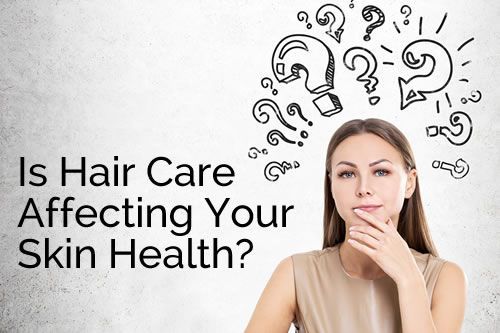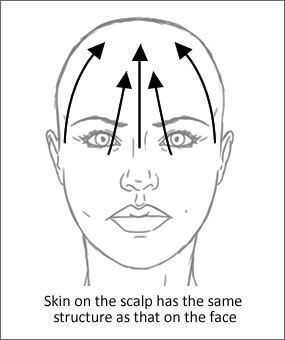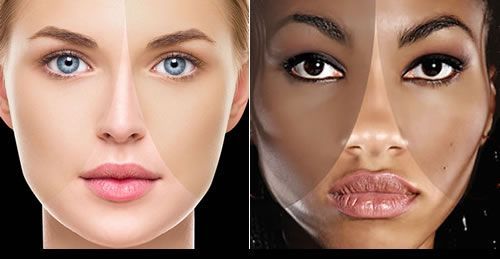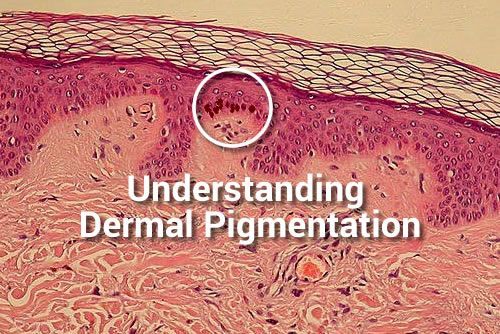Article
Is Hair Care Affecting Your Skin Health?
It’s Ironic that many people spend a lot of time and money on skin care products for their sensitive, reactive skin, but don’t consider that same amount of money, care, and thought be given to the shampoo, conditioner, and colour frequently applied to their scalp and hair.
As professional skin treatment therapists, could we be doing more to educate them? FBH
The core principle of treating sensitive, reactive skins (such as eczema, psoriasis, or dermatitis) is by Corneotherapy techniques and skin care products. We use these products because the ingredients are more physiologically compatible with the skin.

Imagine if they were to apply this same principle to their scalp and hair care products. What difference would it make?
We need to understand that the scalp is a continuation of facial skin, and is made up of the same type of epidermal cells (known as Corneocytes) as the face.

These Corneocytes are a large part of skin barrier defence systems, designed to protect the inner epidermis and dermis from the environment.
Hair is specialized epithelial cells that are “hard” keratin proteins called Trichocyte keratins that could classify as a ‘barrier defence system.’ As hair too plays a role in protection against friction, bacteria, and temperature control similar to skin.
Having established the link between epidermal cells and hair cells it stands to reason that hair and scalp should be given the same care and attention when it comes to formulating ‘personal care’ products.
Consider the action of cleansing facial skin with shampoo; it is not something that many would ever consider.
However, every time hair is washed, the scalp skin is subjected to surfactants that were designed for hair; not skin.
If your facial skin had issues with ‘barrier disorders’ such as eczema, psoriasis, or dermatitis and classified as ‘high risk’ (sensitive), then so will your scalp skin, and should be given the same consideration as facial skin.
Skin, Scalp, and Hair also become compromised with barrier defence disorders through medical conditions such as cancer and associated treatments such as chemotherapy. Hair loss is accepted and classified as a standard result of chemotherapy, but very little thought given to the condition of the scalp hidden under a scarf or hair piece.
Because immune systems deteriorate during treatments such as chemotherapy, the purer a formulation can be, the better the end product will be.
It is challenging in the formulating of hair care products today to access ingredients suitable for scalp and hair care product that have a high content of plant origin surfactants; with many of those plants used for the ingredients being certified organic.

If you or your clients suffer from eczema, psoriasis, or dermatitis then consider that the hair care products you are using may not be helping the condition.
You ideally should be seeking a well-balanced skin care formulation for scalp skin, and hair care, and a natural, allergy certified hair care formulation that will not compromise the immune system during illness or allergy or deteriorate the barrier defence systems of scalp skin, or hair.
If you are providing professional serviced in clinic for people with sensitive or reactive skins, perhaps you could be offering them a solution for their hair at the same time you prescribe your take home skin care.
Why risk the client inadvertently undoing all the good work you’ve done on their skin when you can provide a complete package?
Consider it extending the principles of Corneotherapy to the scalp and hair. FBH
share this
Related Articles
Related Articles





